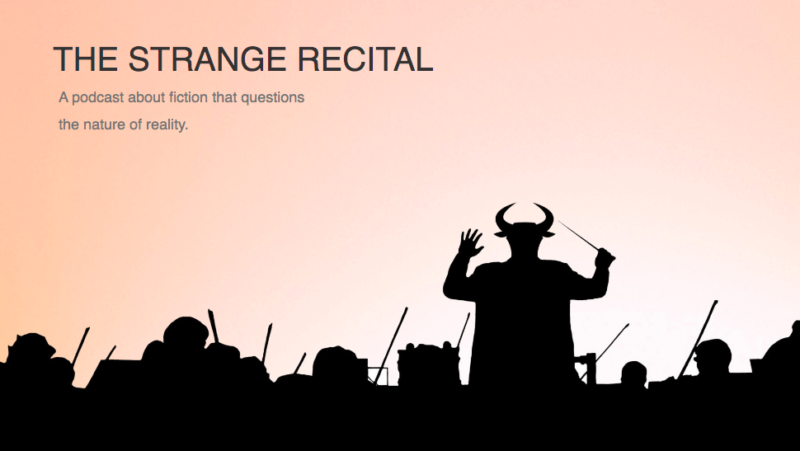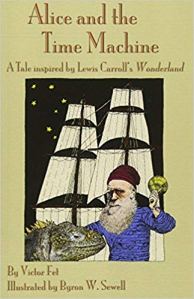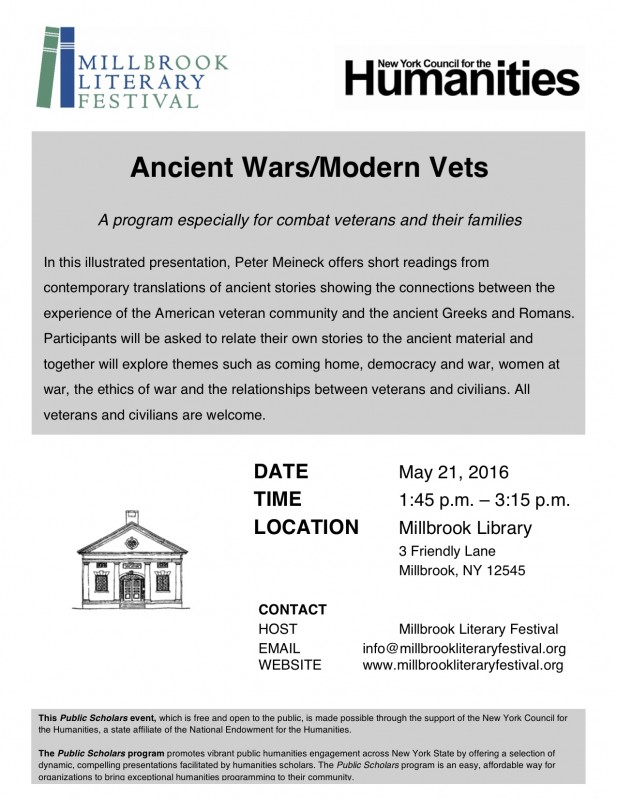 Donald Favareau is an Associate Professor at the University Scholars Programme, National University of Singapore, where he developed and has been teaching since 2004 Asia’s first university-level course on Biosemiotics. Co-Founder and Vice-President of the International Society for Biosemiotic Studies since 2005, his work explores both the natural foundation of sign processes in living systems, as well as the history of scientific thinking about such processes. Continue reading “Don Favareau selected as 2023 Science-Art Researcher”
Donald Favareau is an Associate Professor at the University Scholars Programme, National University of Singapore, where he developed and has been teaching since 2004 Asia’s first university-level course on Biosemiotics. Co-Founder and Vice-President of the International Society for Biosemiotic Studies since 2005, his work explores both the natural foundation of sign processes in living systems, as well as the history of scientific thinking about such processes. Continue reading “Don Favareau selected as 2023 Science-Art Researcher”
The Strange Recital receives Ben Jorgensen Memorial Fund Award
The Dactyl Foundation is pleased to announce that Brent Robison and Tom Newton, producers/hosts of The Strange Recital, have received a grant from the Ben Jorgensen Memorial Fund in recognition of the work they have done creating their high-quality literary podcast.
The Strange Recital is an audio anthology of short fiction that “questions the nature of reality” and has been in continuous production since 2016 with over 130 episodes.
Each podcast episode features one writer and runs about 20 minutes. It includes a story reading – the Recital, a brief musical interlude, and an author interview with a twist – the Post Recital. Continue reading “The Strange Recital receives Ben Jorgensen Memorial Fund Award”
Dactyl Art-Science researcher J. Augustus Bacigalupi on Quant/Qual
J. A. Bacigalupi (2020); Evolving Ethnographies: Problematizing Social Practice via Interactive Installations and Human Habits of Alienation sentientartworks.com/science
Marcella Faria at the Stellenbosch Institute for Advanced Study
 Marcella Faria, Dactyl Foundation art-science researcher, began a fellowship at SIAS in Stellenbosch, South Africa this month. Her project, Cell stories: how key are the words? investigates connections between cell biology and literary forms.
Marcella Faria, Dactyl Foundation art-science researcher, began a fellowship at SIAS in Stellenbosch, South Africa this month. Her project, Cell stories: how key are the words? investigates connections between cell biology and literary forms.
While at STIAS, Faria will identify potential overlaps between ‘cell biology terms’, historical facts and literary pieces of the last century. Her hypothesis is that by mapping the common metaphors, a narrative will emerge “starting with borders and identity, progressing into contact and recognition, and eventually developing into connection and networking.” She will also investigate the extent to which the history of the term ‘cell’ grasps essential features and mechanisms of life itself.
She notes that biology and language are complex systems in which the emerging properties have to do with the organisation of the parts. Both systems are based on arbitrary codes that produce selective meaning. Despite the natural hierarchies and repetitions, the systems are not predictable with their behaviour adapting to context by different connections and feedback loops due to the undetermined nature of semiosis itself.
Meagen Youngdahl, 2019 Dactyl Scholar, completes project
 Meagen Youngdahl, a poet who has served as a Dactyl Scholar working in the intersections of art and science, has completed a creative non-fiction piece entitled, “Moving with care: a biosemiotic, narrative inquiry into (in)fertility and bodymind wellness,” which adds a new dimension to semiotics scholarship and to poetry.
Meagen Youngdahl, a poet who has served as a Dactyl Scholar working in the intersections of art and science, has completed a creative non-fiction piece entitled, “Moving with care: a biosemiotic, narrative inquiry into (in)fertility and bodymind wellness,” which adds a new dimension to semiotics scholarship and to poetry.Continue reading “Meagen Youngdahl, 2019 Dactyl Scholar, completes project”
Joshua Augustus Bacigalupi selected as 2020 Dactyl Researcher in Art & Science
 Joshua Bacigalupi is a Social Researcher and Public Designer whose vocation is to understand how people and their environments maintain vitality and thrive on this planet. Throughout his life, the synthesis of both artistic (qualitative) and scientific (quantitative) approaches ground this exploration. Towards these ends, as an undergraduate, Joshua studied environmental science and physical chemistry at UC Santa Barbara. To better understand the nexus between complex social and physical systems, he went on to study architecture earning a MArch from the University of Colorado, Denver, and studied municipal and urban space design in Finland and Italy. Upon return, Joshua served as head designer for the flagship District no.1 police station in Denver that earned AIA and industry design awards. And, in 2002, he founded the residential design practice, BacigalupiWorks.
Joshua Bacigalupi is a Social Researcher and Public Designer whose vocation is to understand how people and their environments maintain vitality and thrive on this planet. Throughout his life, the synthesis of both artistic (qualitative) and scientific (quantitative) approaches ground this exploration. Towards these ends, as an undergraduate, Joshua studied environmental science and physical chemistry at UC Santa Barbara. To better understand the nexus between complex social and physical systems, he went on to study architecture earning a MArch from the University of Colorado, Denver, and studied municipal and urban space design in Finland and Italy. Upon return, Joshua served as head designer for the flagship District no.1 police station in Denver that earned AIA and industry design awards. And, in 2002, he founded the residential design practice, BacigalupiWorks.Continue reading “Joshua Augustus Bacigalupi selected as 2020 Dactyl Researcher in Art & Science”
Seven Cries of Delight by Tom Newton wins 2019 Dactyl Foundation Literary Award
 Newton’s collection of surreal stories, Seven Cries of Delight (Recital Publishing, 170 pages) was nominated by Brent Robison who, in his review, writes, “As legions of MFA students busily workshop their childhood drama into market-friendly ‘realistic’ fiction, Tom Newton has clearly been following a different muse.” At Dactyl Review we value unique and eccentric talent and our readers will find those few authors writing today who aren’t trying to appeal to the most common of those dominating the market. Newton appeals to a special literary taste, to those whose minds tend to wander, who question the act of thinking itself and who often catch themselves in the act, examining the form and structure of the process of meaning-making. In short, Newton writes about thought-art.
Newton’s collection of surreal stories, Seven Cries of Delight (Recital Publishing, 170 pages) was nominated by Brent Robison who, in his review, writes, “As legions of MFA students busily workshop their childhood drama into market-friendly ‘realistic’ fiction, Tom Newton has clearly been following a different muse.” At Dactyl Review we value unique and eccentric talent and our readers will find those few authors writing today who aren’t trying to appeal to the most common of those dominating the market. Newton appeals to a special literary taste, to those whose minds tend to wander, who question the act of thinking itself and who often catch themselves in the act, examining the form and structure of the process of meaning-making. In short, Newton writes about thought-art.
Who Owns the World?
 The state of platform cooperativism November 7-9, 2019 at the New School.
The state of platform cooperativism November 7-9, 2019 at the New School.
Around the globe, we are starting to build an alternative economy that benefits the many, not just the few. Our passions, research, and projects challenge platform capitalism and chart a more democratic future. We show that an inclusive economy is not only necessary but already growing among us.
When starting a platform co-op, we have a much better chance at success if we rely on the support of our communities, established co-ops, incubators, co-op banks, unions, foundations, researchers, lawyers, technologists, and policymakers. “Who Owns the World?” is about building connections between these groups, finding the much-needed support, and learning from each other. For the first time, this event will bring together many of the most active players in this movement worldwide to share updates and insights, instigate initiatives, make new friends, lift each other up, plan next steps, and find new business partners as well as funders.
Celebrating 10 years of digital labor conferences at The New School, “Who Owns the World?” will feel the pulse of platform cooperativism, worldwide.
Victoria Alexander, director at the Dactyl Foundation and editor of Dactyl Review, will speak about efforts to transform literary fiction publishing using a co-operative platform model.
Such Is the Scent of Our Sweet Opalescence by U.R. Bowie
 The reader of a good book can hear the narrator speaking, can even envision the narrator’s gestures and facial expressions. Dactyl Review contributing editor, U. R. Bowie consistently produces fiction that animates itself in the reader’s mind. And now this, an audiobook of Bowie’s short story collection, Such Is the Scent of Our Sweet Opalescence (Ogee Zakamora, 148 pages), read by the author. (Paperback also available.) The narrator of title story is Uretherer V. Lamb, a character reminiscent of one of Kurt Vonnegut’s memorable creations. The story opens when U.V. is struck by lighting in the midst of taking a leak roadside. He meets death, in the form of grinning Delmas W. Pruitt, but somehow U.V. cheats Delmas and goes on to live his life as a “backslider” without a soul, it seems.
The reader of a good book can hear the narrator speaking, can even envision the narrator’s gestures and facial expressions. Dactyl Review contributing editor, U. R. Bowie consistently produces fiction that animates itself in the reader’s mind. And now this, an audiobook of Bowie’s short story collection, Such Is the Scent of Our Sweet Opalescence (Ogee Zakamora, 148 pages), read by the author. (Paperback also available.) The narrator of title story is Uretherer V. Lamb, a character reminiscent of one of Kurt Vonnegut’s memorable creations. The story opens when U.V. is struck by lighting in the midst of taking a leak roadside. He meets death, in the form of grinning Delmas W. Pruitt, but somehow U.V. cheats Delmas and goes on to live his life as a “backslider” without a soul, it seems.
Continue reading
Meagen Youngdahl, named 2019 Dactyl Scholar in Art and Science
Meagen Youngdahl has been named Fall 2019 Dactyl Scholar. Youngdahl is a multi-genre writer and a doctoral candidate in Creative Writing at the University of Kansas. She holds a BA in English and Film Studies from UC Berkeley and an MA in Creative Writing from UC Davis. Her work, which is influenced by her ongoing research in (bio)semiotics, aims to challenge boundaries between critical and creative writing and thought.
She will be working on a creative non-fiction project exploring the intersections of poetics and biosemiotics, specifically through the work of 2009 Dactyl Essay Award recipient, Wendy Wheeler.
Victoria Alexander Receives Fulbright U.S. Scholar Award to Russia
 The U.S. Department of State and the J. William Fulbright Foreign Scholarship Board are pleased to announce that Victoria Alexander with Dactyl Foundation in New York, has received a Fulbright U.S. Scholar Program award to St Petersburg, Russia. Alexander will conduct research and lecture at ITMO University in the Digital Humanities Lab as part of a project: The Poetics of Science: How Biosemiotics helps us understand living systems, evolution, creativity, and language.
The U.S. Department of State and the J. William Fulbright Foreign Scholarship Board are pleased to announce that Victoria Alexander with Dactyl Foundation in New York, has received a Fulbright U.S. Scholar Program award to St Petersburg, Russia. Alexander will conduct research and lecture at ITMO University in the Digital Humanities Lab as part of a project: The Poetics of Science: How Biosemiotics helps us understand living systems, evolution, creativity, and language.
Alexander is one of over 800 U.S. citizens who will teach, conduct research, and/or provide expertise abroad for the 2019-2020 academic year through the Fulbright U.S. Scholar Program. Recipients of Fulbright awards are selected on the basis of academic and professional achievement, as well as record of service and demonstrated leadership in their respective fields. Continue reading “Victoria Alexander Receives Fulbright U.S. Scholar Award to Russia”
from the editor of Dactyl Review
Platform Cooperative Book Publishing
Posted on August 8, 2019 by VN Alexander

We have Internet now.
Why hasn’t book publishing improved? Technology has changed a bit since books the days of cut wood blocks and repurposed wine presses. With desktop publishing, print-on-demand (POD), ebooks, audiobook files and the Internet, upfront capital investment in the material aspects of publishing is no longer required and the role of the traditional publisher has diminished.
We all have access to this wonderful newish invention called the Internet search engine which should have realized the dream of decentralized connectivity and reduced the need for a middleman to select, distribute, market and sell books. Blocking the way between author and reader are the vestigial organs of the old publishing system that mainly dealt in offset print paper books that had to be produced, stored and distributed at great cost. Technological progress frees human beings from the material drag of the old system and leaves only the tasks that will never be performed by machines: writing, editing, final proofreading and reviewing. The profits from book sales need not be siphoned off by those now useless middlemen, distributor, marketer, and seller. Even though the Internet has made these roles obsolete, they have, monstrously, become even more powerful and centralized than ever. The “big five” publishing industry monopolies, Google and Amazon are the very opposite of what the Internet promised humanity. Good literature is essential for a thriving culture.
What do we need?
A cooperative platform model of publishing and selling, designed to cut out unnecessary middlemen, reward the essential work of those directly involved in writing and editing and ensure that authors can be paid for every book sold or borrowed throughout the extended lifetime of the book. Continue reading →
Posted in just literary fiction | 1 Comment
Latest from Dactyl Review
We might as Well Light Something on Fire by Ron Maclean
Posted on August 22, 2019 by Dactyl Review
Three Dialogs about Ron Maclean’s Three-Part Short Story Collection, We Might as Well Light Something on Fire (Braddock Avenue Books, 179 pages):
I. goats, rabbits, etc.
We’re going to talk about we might as well light something on fire .
Right. You know the writer?
Yes.
Is he brave?
I was never in combat with him. Why do you ask?
Guy writes a really far out book called we might as well light something on fire, some smartass will say, right, let’s start with this book.
That would be an incendiary insult to one of the most original collections I have ever read. How do you want to proceed?
Section by section, one of the three sections for each meeting, and concentrate on one story. Continue reading →
Posted in just literary fiction | Tagged existential literary fiction, experimental literary fiction, surreal writing style | Leave a comment
Thoughts on Publishing and the Plight of the Writer of Literary Fiction
Posted on August 15, 2019 by U.R. Bowie

Lot of good ideas by V.N. Alexander, in her recent post on publishing; co-op publishing may be the future. For me the great innovation in book publishing is POD. V.N. Alexander’s article makes it crystal clear why pre-printing an entire run of books–I have, largely, literary fiction in mind–makes absolutely no sense anymore.
“Other roles of the traditional publisher have been effectively eliminated by technology.” Right. Then again, the author, through social media, is now expected to do all, or practically all, publicizing of the book. Who needs a publisher, then?
“The two most valuable services that traditional publishers provide are editing and proofreading,” but, as V.N. asserts, finding competent people to proofread or copy edit books is not that difficult.
Actually, there is one big thing that traditional publishers can do for a writer of literary fiction. They can get the writer IN with the literary establishment. This, ultimately, is the only thing that really counts. Once you are IN, your books get reviewed by Kirkus, Library Journal, Publishers Weekly and Booklist. If you never get IN nobody ever knows you exist. And the huge majority of all writers who publish literary fiction will remain, egregiously, OUT. Continue reading →
Latest from Dactyl Review
The Principle of Ultimate Indivisibility: A Web of Stories by Brent Robison
Posted on June 25, 2019 by Dactyl Review
As a reader, my career has fallen off precipitously since my eyes went bad during a misspent late-innings career in adversarial journalism, peering directly into the radioactive maw of a circa 1998 Gateway CRT monitor for 18 hours a night, four nights a week. Much earlier, back when I was a long-distance commuter slouching daily into servitude in downtown Manhattan from various exurban hellholes, I would devour up to four novels a week on the train, trying to avoid conversation and making friends. Over the past few years, striving to get a handle on thriller plotting and structure, I listened to various incarnations of the ubiquitous “Homeland Security porn” genre (Alex Berenson, Vince Flynn, Lee Child, etc.) in the car, until the CD player went south. Now it’s podcasts and, with a new pair of reading glasses, the occasional book. Short stories, however, have almost never been on the menu. I am naturally attracted to long-form entertainment; the longer and more involved and loaded with digressions, the better. My brain does not like to stop and start, and instinctively resists efforts to reset for the next tale in a chain of literary non-sequiturs. I’m pretty sure the only compendiums of short stories I ever got through from start to finish were Kurt Vonnegut’s Welcome to the Monkey House and the five collections put out by Charles Bukowski, each segment of which was pretty much like every other piece of stream-of-consciousness lyrical rambling he ever wrote, including his “poetry.” I might have read a book of Poe’s stories back in elementary school, but that experience has been lost to the mists of approaching dementia, and is no help at all.
Thus I was under-prepared and nervously anticipating a case of low-attention-span anhedonia when I was asked to read and review the thirteen stories in Brent Robison’s The Principle of Ultimate Indivisibility: A Web of Stories (Bliss Pot Press, 194 pages). Continue reading →
Posted in just literary fiction | Tagged cinematic fiction, disturbing literary fiction, existential literary fiction | Leave a comment
Latest from Dactyl Review
Wasted by Biff Thuringer
Posted on May 26, 2019 by Dactyl Review
Sometimes I like to explore the foggy borderlands between genre fiction and literary fiction.
Raymond Chandler’s crisp and evocative prose and insightful character development transcend the hard-boiled detective genre. His novel The Long Goodbye was praised in an anthology of American crime stories as “arguably the first book since Hammett’s The Glass Key, published more than twenty years earlier, to qualify as a serious and significant mainstream novel that just happened to possess elements of mystery.”
For similar reasons, the movie Chinatown escaped its noir pulp pigeonhole to become a classic of serious film (if such can ever come from Hollywood). Screenwriter Robert Towne and director Roman Polanski took it deeper than the standard commercial mystery pic.
If “eco-thriller” can be said to be a genre today, Biff Thuringer’s novel Wasted: A Story of Love Gone Toxic (Chronic Publishing/Epigraph Books, 280 pages) walks the liminal space where that category’s conventions give way to something more, an artful challenge to everyday thinking. Continue reading →
Posted in crime novel | Leave a comment
Latest from Dactyl Review
When Writers Who Are Not Russian Write Novels Set in Russia
Posted on August 20, 2018 by U.R. Bowie

Some time back I wrote a review of The Conductor, by a writer from New Zealand, Sarah Quigley—the review is available here on the site of Dactyl Review. Set in Leningrad during the Nazi siege of WW II, the book details the life of a rather unassuming and humble musician, who gets his chance to conduct Shostakovich’s Seventh Symphony, dedicated to the besieged city. Quigley’s novel is good, especially sparking for its insights into classical music and its depictions of Shostakovich, but it is full of details that produce unintentional comic effects.
These details are indicative of a writer who knows little about Russian life and culture, speaks no Russian, and may not have ever set foot in the city of St. Petersburg (Leningrad). In one of the biggest howlers in the book, The Bronze Horseman—that statue of Peter the Great in Petersburg and the most famous monument in the whole country—is described as waving a sword in one hand. The fertile imagination of the author conjures up that sword and describes it in some detail: “His sword had a greenish hue towards the hilt, but its tip was bright from the touch of many hands.” Nice sword, except that on the actual statue it does not exist.
I’ve recently read two other novels set in Russia: (1) David Benioff, City of Thieves (Viking Penguin, 2008) and (2) Amor Towles, A Gentleman in Moscow (Viking, 2016). Both books have been well received, attracting favorable reviews and scads of readers. And with good reason, since they both have appealing characters and fascinating plots. Continue reading →
Posted in just literary fiction | 2 Comments
The Surprising Place by Malinda McCollum
Posted on August 13, 2018 by Charles Holdefer

Good book titles play with a reader’s expectations. A short story collection called The Surprising Place (University of Massachusetts Press, 197 pages) might seem to imply an emphasis on locale, a Winesburg, Ohio-ish evocation of a town and its inhabitants. And, in fact, this volume of stories takes its title from a former promotional slogan for Des Moines, Iowa, which provides the backdrop for most of the action. Still, what is “surprising” in Malinda McCollum’s excellent new book and winner of the Juniper Prize for fiction is not a matter of geography, in the prosaic sense. Rather, it concerns a different kind of space, a province of heart and mind. For lack of a better term, you could call it interiority. McCollum offers intensely observed portraits of her characters’ internal struggles which are often unsettling and full of contradiction.
Though not presented in a linear fashion, many of these dozen stories follow the adventures of a man named Green, from his adolescence to early adulthood to precarious middle age to his deathbed. Green’s name is apt, for at every age, he seems on the wrong end of the learning curve. In stories like “He Ain’t Jesus” and “Think Straight,” Green’s mishaps are largely self-inflicted, and he is the victim of his own schemes.
His wife Nora endures his philandering and other flaws but she is no longsuffering cliché. She inhabits a complicated mental world of her own, as revealed in the story entitled “Sharks.”Continue reading →
Posted in just literary fiction, short story collection | 1 Comment
The Best American Short Stories, 2017
Posted on August 5, 2018 by U.R. Bowie

The Best American Short Stories, 2017 (Selected from U.S. and Canadian Magazines by Meg Wolitzer with Heidi Pitlor), Houghton Mifflin Harcourt, 2017, 303 pp.
Ten years ago the writer Elif Batuman wrote an article on two anthologies titled Best American Short Stories, for the years 2004 and 2005. Her amazing conclusion, well-reasoned and argued, was that many of the “best stories” in these collections were not very good stories. As she puts it, “Contemporary short stories contain virtually no reference to any interesting work being done in the field over the past twenty, fifty, or hundred years; instead, middle-class women keep struggling with kleptomania, deviant siblings keep going in and out of institutions, people continue to be upset by power outages and natural disasters, and rueful writerly types go on hesitating about things.” Domestic realism. Urggh.
That urggh added on there belongs to me, and I amplified upon it in a long jeremiad published on Dactyl Review: “The New Yorker Short Stories (“The Great Boondoggle of the American Short Story”). Anyone interested can read the whole thing, but I will sum up its main point here: the MFA racket and the creative writing swindle in American universities have cheapened the value of the American short story, so that what are supposed to be the best American literary journals now publish huge numbers of weak stories in the gruesome genre of “domestic literary fiction.” Continue reading →
Posted in just literary fiction, realist fiction, short story collection | Leave a comment
On Literary Translation
Posted on July 30, 2018 by U.R. Bowie
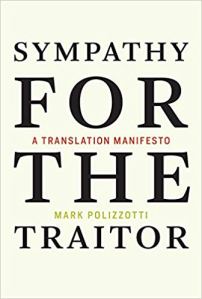
These remarks are based, largely, on Emily Wilson’s book review of Mark Polizzotti, Sympathy for the Traitor: A Translation Manifesto (MIT Press, 2018). The review appears in the New York Review of Books, May 24, 2018, p. 46-47.
Assuming that most of us are not bilingual or trilingual, without literary translation we cannot read novels, stories, poems written in foreign languages. But practically no one seems to agree on what makes for a good literary translation. The crucial question always seems to be how much leeway the translator is given. Must he/she (1) remain very close to the original, producing a literal translation that may not read well in the target language? (2) diverge from the original to produce a kind of imitation? (3) push the imitation so far that it amounts to a traducing of the original (even though it may read well and be a work of creative art in the target language)? Continue reading →
Posted in just literary fiction
.
Alice and the Time Machine by Victor Fet
Posted on July 6, 2018 by VN Alexander
Victor Fet, a colleague with whom I have shared adventures in art and science, offers Alice and the Time Machine (Evertype, 134 pages, illustrated by Byron W. Sewell) on the 150 anniversary of the publication of Alice’s Adventures in Wonderland and the birth of H.G. Wells. The novella brings together Alice Liddell, Charles Dodgson (aka Lewis Carroll), John Dalton (of atomic theory fame), Charles Darwin, Francis Galton (Darwin’s half-cousin) and Wells, who arrives in Darwin’s time of 1862 from 1892 via a time machine. Together they determine that Alice’s mad tale is actually a message from the future, warning them of coming chaos, bloody wars, catastrophic pollution and tyranny. They form the Time Corps and use the time machine to contact scientists past and future to enlist their aid to try to change the world for the better. As they do their work, they notice changes in their own time. At the beginning of the tale, Wells is a nobody but becomes a famous science-fiction author while the other Wells fades in his memory as if a dream. Continue reading →
Posted in historical fiction, science fiction | Tagged comic literary fiction, literary fable, unassuming literary style | 2 Comments
Latest from Dactyl Review
 A Decent Woman by Eleanor Parker Sapia
A Decent Woman by Eleanor Parker Sapia
In The Age of Insight, Eric Kandel writes about the role of the observer in art: “Not only does the viewer collaborate with the artist in transforming a two dimensional likeness on canvas into a three-dimensional depiction of the visual world, the viewer interprets what he or she sees on the canvas in personal terms, thereby adding meaning to the picture. Riegel called this phenomenon the “beholder’s involvement.”
Kris’s study of ambiguity in visual perception led him to elaborate on Riegel’s insight that the viewer completes a work of art. As a neuroscientist, Kandel focuses on the plastic arts, but his discussion brings us to the question of writing and specifically to the question of the “historical novel”. What does historical writing demand from the reader in order to “complete a work of art”?
There are three dimensions involved: Time, the writer’s mind, and the reader’s perception.
We know that writers filter reality, compress time, squeeze events, introduce ‘fictional’ aspects to such an extent that often the historical novel masquerades as a “quasi-memoir” splicing together documentation from time past with the writer’s art and craft of invention.
In other words, how much of an historical novel is history and how much is literary fiction? And, really, does it matter? And what has Eleanor Sapia Parker done in A Decent Woman (Booktrope, 265 pages)? Continue reading
Citadel (Global, 372 pages) is a much needed, unforgiving and unapologetic evisceration of the idea of female inferiority we have so primitively accepted today and throughout history. Remick shows tremendous skill in the way he attacks such a heated and complicated subject. He never shies away from the atrocious acts of violence against women, but neither does he lose the magic of his whirlwind storytelling in favor of lecture. Citadel is an honest, sometimes savage look at the relationship between men and women, and what the world could be like if women were in control.
Trisha de Tours is an editor at Pinnacle Books and has been directed by her boss to find a bestseller. When she finds out the new resident in her condos, Daiva Izokaitis, has a manuscript called Citadel, she agrees to read it. Trisha soon finds out Daiva is a literary rebel, refusing to adhere to the fundamentals of writing and later refusing to participate in the editing process, yet she has created a revolutionary novel that overcomes Trisha so completely we see her drown in the story, and reemerging a different woman. Continue reading
On Writing Fiction: The Case of Philip Roth (1933-2018)
“We must read only the kind of books that wound and stab us. If the book we are reading does not wake us up with a blow to the head, then what are we reading it for? A book must be the axe for the frozen sea inside us.” …Franz Kafka
Some of the best writers in world literature—Kafka in German, say, Isaac Babel in Russian, Philip Roth in English—are the kind of writers who love to inflict blows to the head of the reader. In so doing they must, however, be ever aware that someone smacked upside the head will yell, and yell loudly.
Nathaniel Rich discusses this issue in regard to Roth (NYRB, March 8, 2018).

Philip Roth had “to defend himself and to explain himself to the paranoid assimilationists of his father’s generation who berated him for ‘informing the goyim that some Jews might not be paragons of virtue and might even possess human qualities.’” Roth told his detractors, “Fiction is not written to affirm the principles and beliefs that everybody seems to hold.” This was in response to the reaction to his story, “Defender of the Faith,” published in The New Yorker in 1959. Continue reading
Annual Biosemiotics Gathering at Berkeley, CA June 2018
 This is a rare opportunity for Americans to attend the Biosemiotics annual conference. Usually held in Europe, it will be held in California this spring.
This is a rare opportunity for Americans to attend the Biosemiotics annual conference. Usually held in Europe, it will be held in California this spring.
Call for Papers
18th Annual Biosemiotics Gathering, Berkeley, California, June 17-20, 2018
The Scientific Advisory Committee of the 18th Gathering in Biosemiotics is pleased to invite scholars to submit abstracts on the fundamental mechanisms of meaning-making (semiosis) in living systems
Marcella Faria, Dactyl 2017 visiting researcher, publishes on bio-poetics
 Over the course of 2017, Marcella Faria has been working at Dactyl Foundation as a visiting researcher in art-science topics. We are pleased to announce the publication of her article, “Aggregating, Polarizing, Networking – The Evolution of Cell Adhesion Codes” in BioSystems.
Over the course of 2017, Marcella Faria has been working at Dactyl Foundation as a visiting researcher in art-science topics. We are pleased to announce the publication of her article, “Aggregating, Polarizing, Networking – The Evolution of Cell Adhesion Codes” in BioSystems.
This research explores how complex multi-cellular life began simply by cells being able to stick together, with one side facing the extracellular world and the other sides facing cell neighbors. The particular ways they stuck together enabled the individual cells to move in relation to one another, communicate with each other, and differentiate from one another. Remarkably, as Faria points out, only three classes of interconnected molecules are needed for these intelligent functions to emerge: Extracellular Matrix components (ECMs), the adaptable stuff and/or spaces in between the cells through which signals can diffuse and cells can move; Cell Adhesion Molecules (CAMs), the various adaptable receptors that pierce the cell membrane and act as mediators between the outside and inside worlds; and dynamic cytoskeleton microfilaments that tether cells together. Changes in each of the three components can have consequences to the other two, which means that there is no strict one-to-one relationship between signals and their meanings. In short, there is a very simple basis for all the incalculably complex interactions of living forms.
The full paper is available here. Continue reading “Marcella Faria, Dactyl 2017 visiting researcher, publishes on bio-poetics”
Latest from Dactyl Review
If you choose to read this book, to visit this Hotel, you will find it to be finely crafted by photographer Michel Varisco and writer Tom Whalen into a labyrinth of stairways and passageways of uncertainty, mystery, and intrigue, along which there are scattered bread crumbs, enticements, clues and innuendo that will take you down corridors that you hope will lead to your room. Henry Green described good prose as a “gathering web of insinuations.” Once you check in, whatever past you may have had will become a forgotten dream and then time itself will become inverted, then finally cease to have any meaning at all. Continue reading
 The Heritage of Smoke by Josip Novakovich
The Heritage of Smoke by Josip Novakovich
In The Heritage of Smoke (Dzanc, 240 pages), a collection of short stories set mainly in 20th century war-wrecked Croatia or Ex-Yugoslavia, Josip Novakovich makes American-born writers, whose plots inevitably turn on sexuality and identity, seem merely whiny and self-obsessed. This masterful storyteller follows ordinary lives in the relatively small, recently-renamed Eastern European country, of which Americans are only vaguely aware, whose diverse cultures and old animosities persist through regime change. Caught between the whims and wars of super power nations and petty dictators, the characters revealed here endure, curse, and try to have fun. Novakovich’s characters tend to be listless, jaded, and stubborn, but they also have a kind of a dignified persistence, like old trees growing in the cracks of mountaintop stone . Continue reading
Russia. Russia. Russia. Ever since the Wicked Witch of the West succumbed to the Reality Circus Clown, the popular press has been serving up reconstituted Cold War propaganda, declaring that the Russian “enemy” is brainwashing us through Facebook posts and massaging our malleable minds via sexy Russian public television hostesses. Clapper, former U.S. intel head, went so far as to warn us that all Russians are genetically predisposed to lying and meddling.
Before we learn to love the idea of trying to bomb them into oblivion, let’s consider the question of the Russian Soul. Who are these people? What characteristics do they share, if any, with you and me?
U. R. Bowie offers his meditation on Russianness in an extraordinary travel log through Ultimia Thule, the farthest point, exploring dreams, lectures and diaries. Hard Mother (Ogee Zakamora, 429 pages) is a challenging novel; never boring; persistently humorous, it is organized with staggering complexity, interweaving dreams with fiction with anthropology, flashing forward, back and around. The book cover warns the reader to “keep both hands on the wheel.” Good advice. Continue reading
It’s that time of year
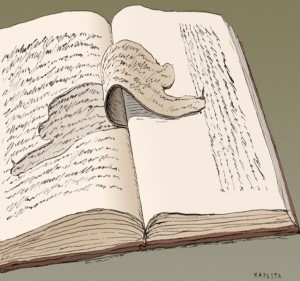
In 1959 Elizabeth Hardwick, novelist, reviewer, and wife of poet Robert Lowell, wrote a pointed critique of the book reviewing industry. She noted that the most trusted of review organs, the New York Times Book Review, was remarkable only for “the flat praise and the faint dissension, the minimal style and the light little article, the absence of involvement, passion, character, eccentricity — the lack, at last, of the literary tone itself.”
That was 1959. The year is now 2017 and coming to a close, and that means it’s time for me to come to you, hat in hand, to ask for your support for Dactyl Review, a literary fiction book review created by and for the literary community. If sixty years ago literary reviewers had begun to dwindle, as Hardwick noted, in the following decades we have seen the disappearance of the literary reader, the literary writer’s habitat. You may think rightly of this as an appeal to save an endangered species.
Every year, about this time, I try to explain why literariness matters, why we all need a little poetics in our lives. You can find some of these appeals here and here and here. The same still goes for 2018. Please be as generous as you can. We’ve got some great authors and reviewers here who need readers. And your donation is tax-deductible.
-VN Alexander, Editor
In honor of John Ashbery
 Dactyl Foundation owes much to John Ashbery, who was an active advisory board member from our earliest days. He brought a number of talented poets and art critics through our doors and contributed to many discussions about poetry, history, science and art. Thank you, John.
Dactyl Foundation owes much to John Ashbery, who was an active advisory board member from our earliest days. He brought a number of talented poets and art critics through our doors and contributed to many discussions about poetry, history, science and art. Thank you, John.
In celebration of his life and work, we asked Tom Breidenbach to dedicate a poem to his memory.
___________________________
Lea Lay
—for John, in memorium
“These are amazing…” —John Ashbery, from “Some Trees”
Their sundry heights, the crowns
on some apportioned geometrically
about a slant echo of their stem,
the spindly chute the seed
attaches to in rows like fraying
feathers in a faerie arrow’s tail…
Their wispy lusters roam
from blonde to green slats
and dribbles interspersed
with ruddy motes—the browns
of flower husks whose prickly
nubs exclaim regalia’s symbols—
and on to woven sprays of umber
or a bristly and recessive blaze
whose ochre taunt evanesces
from sienna’s paler intonations
intermeshed in chiefly static
poise among the dun and lumpish
auburn tangles knotting
this fleece of sward winds burnish
at it brazes in the summer sun.
With tips like listing quills
scribbling a score of constant song
and a winsome spate of narrow
leaves that tend to curl
their pointed tips groundward
the tallest bob and bow
as though observing, or lean
in meekly fractured unison as
if repeating gestures of oblation
resembling the ardent arc
a just sovereign’s scepter traces
in conferral of forgiveness
or a duty. And soon the thrum
a plunging node of breeze effects
enjoins a clump to flange
in pliant radii extending
in all directions adjacent blades
are bent, these splat gyrations’
razzmatazz immediately yielding
to daintily exasperated do-si-dos
for but the hint of time remaining
before familiar nods resume
from near repose, a spell in turn
subsumed by a loop to looping
league of spirals reminiscent
of the drastically adroit maneuvers
a maestro’s baton at the crescendo
of a sheer lament unravels
as though to ape that host
of vernal tendrils twined with locks
sweetly sweeping within Elysium
a brow they loll and toss upon
as dew accrues to glaze this
sylvan glade’s chatoyant luster,
the paisley pox its drops deposit
on petals, leaves, and stalks
depicting each letter of these words.
—Tom Breidenbach
The latest from Dactyl Review

To describe a book as unclassifiable is, of course, to classify it, but that fact is entirely in keeping with the spirit of Jacob Smullyan’s Errata (Sagging Meniscus, 72 pages). Comprising thirty short chapters of mini-essays, stories and philosophical aperçus, it straddles numerous genres and grapples with the process of making sense.
If that sounds rather serious, it is—but Errata is also playful, not afraid of a joke or calling into question its own premises. To the extent that Errata has a plot, it circles around coffee-drinking. Overlapping characters share this ordinary act which is also of a piece with extraordinary possibilities, as coffee drinkers variously find themselves in a café or lying in a ditch or pushed out of an airplane.
If that sounds rather serious, it is—but Errata is also playful, not afraid of a joke or calling into question its own premises. To the extent that Errata has a plot, it circles around coffee-drinking. Overlapping characters share this ordinary act which is also of a piece with extraordinary possibilities, as coffee drinkers variously find themselves in a café or lying in a ditch or pushed out of an airplane.
Smullyan embraces contradiction. Continue reading
Tenth of December by George Saunders
 In a recent rant I wrote on the sad state of the contemporary American short story, I railed against what is sometimes known as ‘The New Yorker story,’ that all-too-common pedestrian thing called “domestic literary fiction.” Happily, there are always exceptions to egregious trends, and George Saunders (Tenth of December, Random House, 272 pages), who is a contributor to The New Yorker, is a big one. Exception, that is.
In a recent rant I wrote on the sad state of the contemporary American short story, I railed against what is sometimes known as ‘The New Yorker story,’ that all-too-common pedestrian thing called “domestic literary fiction.” Happily, there are always exceptions to egregious trends, and George Saunders (Tenth of December, Random House, 272 pages), who is a contributor to The New Yorker, is a big one. Exception, that is.
How is his fiction different from the normal, run-of-the-mill domestic stuff—the kind of fiction I can’t stand? A good place to begin would be with a comparison between his Tenth of December and another book of short stories recently published, The Refugees, by Viet Thanh Nguyen. I picked up Nguyen’s book with high expectations, having read his novel, The Sympathizer, which has great writing, wonderful sentences on every page.
How is his fiction different from the normal, run-of-the-mill domestic stuff—the kind of fiction I can’t stand? A good place to begin would be with a comparison between his Tenth of December and another book of short stories recently published, The Refugees, by Viet Thanh Nguyen. I picked up Nguyen’s book with high expectations, having read his novel, The Sympathizer, which has great writing, wonderful sentences on every page.
I found one good sentence in the whole of The Refugees, “his beautiful and heartrending new story collection” [Joyce Carol Oates editorial review in The New Yorker; beware, beware, o ye readers, the editorial review]. Here is the one good sentence: “Floating in his teacup on the patio table was a curled petal from a bougainvillea, shuttling back and forth.” Why would Nguyen, who is certainly capable of writing good, literary sentences, decide that such sentences are unnecessary in his short stories, that he can get away with the pedestrian and insipid style of The Refugees? Probably because his proximity to the great American boondoggle of the creative writing industry [he is Professor of English at the University of Southern California] has conditioned him to believe that stories need no stylistic verve or panache. “Just the humdrum, dreary facts, ma’am.” As for me, I believe that short story collections, like products in a grocery store, should have expiration dates. For me, The Refugees has already expired. Continue reading
The New Yorker short stories
 THE GREAT AMERICAN BOONDOGGLE
THE GREAT AMERICAN BOONDOGGLE
(The Sad State of the American Short Story)
The situation has been the same for years. Nothing ever seems to change and practically no one deems it necessary even to talk about it. Almost forty years ago a colleague at the university where I taught, a lifelong reader of The New Yorker and a person whose intelligence I respect, said to me, “I love The New Yorker, but I never read the fiction. ‘The New Yorker story’ does not appeal to me.” In a visit to my general practitioner a month ago, the doctor, an avid reader of classical literary fiction—the canonical literary works of the world—remarked, “I love the articles in The New Yorker, but I never read the fiction. Most of it is a total bore.” Over a period of forty years how many other intelligent readers of fiction have said the same thing? Repeatedly. Why is nobody listening?
Over the past ten years I have subscribed to a variety of American literary journals. Someone advised me to try reading Agni, where, so they said, some of the best fiction in the country was being published. I subscribed to Agni for two years and never found a single short story of genuine literary merit. With few exceptions the same was true of the other “literary” journals I read. Continue reading
Infinite Summer by Edoardo Nesi
 Edoardo Nesi’s new novel, Infinite Summer, translated from the Italian by Alice Kilgarriff (Other Press, 320 pages), takes place in Tuscany between August 1972 and August 1982, right in the middle of the period known in Italy as the “Years of Lead,” a period of social and political turmoil marked by left-wing and right-wing killings and bombings. Knowing a bit of this history gives the novel a feeling of unfolding in an alternate Italy, an Italy of booming growth, expanding global markets for Italian goods, and limitless possibilities.
Edoardo Nesi’s new novel, Infinite Summer, translated from the Italian by Alice Kilgarriff (Other Press, 320 pages), takes place in Tuscany between August 1972 and August 1982, right in the middle of the period known in Italy as the “Years of Lead,” a period of social and political turmoil marked by left-wing and right-wing killings and bombings. Knowing a bit of this history gives the novel a feeling of unfolding in an alternate Italy, an Italy of booming growth, expanding global markets for Italian goods, and limitless possibilities.
Nesi is a translator, writer, filmmaker, and politician. He has translated Bruce Chatwin, Malcolm Lowry, Stephen King, and David Foster Wallace, among others. He’s written a dozen books, one of which, Fughe da Fermo, was made into a film that he directed. In 2013 he was elected to the Italian Parliament’s Chamber of Deputies.
Infinite Summer weaves together the stories of four characters: Ivo Barrocciai, the expansive, optimistic son of a modest Tuscan textile manufacturer; Cesare “The Beast” Vezzosi, a small-time building contractor; Vittorio, Cesare’s young son; and Pasquale Citarella, “a hard-working foreman and house painter from the South.” In other words, representatives of the upper, middle, and lower classes. Continue reading
The Second Mrs. Hockaday by Susan Rivers
 The Second Mrs. Hockaday, (Algonquin Books, 272 pages) is an epistolary novel that moves seamlessly between letters to court documents to diary entries. There are chapters that end in the middle of a scene, a diary entry interrupted, leaving the reader to hold his/her breath. The scene continues at the beginning of the next chapter. It is an amazingly effective technique, one that makes us want to race through the pages. The ending of the book?
The Second Mrs. Hockaday, (Algonquin Books, 272 pages) is an epistolary novel that moves seamlessly between letters to court documents to diary entries. There are chapters that end in the middle of a scene, a diary entry interrupted, leaving the reader to hold his/her breath. The scene continues at the beginning of the next chapter. It is an amazingly effective technique, one that makes us want to race through the pages. The ending of the book?
Inspired by the true story of a woman who bore an illegitimate child while her husband was away, Rivers has taken this sparse bit of Civil War history and turned it into a tale of an enduring love that triumphs over the devastation wrought by the war. In doing so, she exposes the hardships faced by the women who were left behind when their husbands, fathers, brothers, and sons went off to fight against the North.
Seventeen-year-old Placidia Fincher Hockaday has been a bride for just 36 hours when her husband, Major Griffith Hockaday, leaves to rejoin his unit. Placidia is left to care for the Major’s 18-month-old son and his 300 acre farm. Two years later, when the Major returns, he learns of the unspeakable things that have occurred in his absence. His beautiful young wife, Placidia, is either unwilling or unable to share with him the circumstances of the birth and death of her child. The Major seeks an inquest. Placidia is arrested. Continue reading
Continue reading “The latest from Dactyl Review”
Latest from Dactyl Review
The Sense of an Ending, by Julian Barnes
 In Julian Barnes’ novel, The Sense of an Ending (Penguin Random House, 2011), we meet a narrator in the long tradition of the sad-sack loser telling his story. Anthony (Tony) Webster, resident of London, now in his sixties, looks back on his life from present time. The novel begins as Tony recalls his days as a student, a time when his life appeared to have a good deal of promise. We meet him as a teenage schoolboy in a public boys school—“public” being the British for “private”—pondering, along with his best friends Alex and Colin, certain grand philosophical issues, such as What is history?
In Julian Barnes’ novel, The Sense of an Ending (Penguin Random House, 2011), we meet a narrator in the long tradition of the sad-sack loser telling his story. Anthony (Tony) Webster, resident of London, now in his sixties, looks back on his life from present time. The novel begins as Tony recalls his days as a student, a time when his life appeared to have a good deal of promise. We meet him as a teenage schoolboy in a public boys school—“public” being the British for “private”—pondering, along with his best friends Alex and Colin, certain grand philosophical issues, such as What is history?
These boys, it would seem, are budding intellectuals, and when a new boy, Adrian, appears at the school and becomes their friend, he expands the boundaries of their intellectual pursuits. Topics raised in class are “Birth, Copulation and Death,” then “Eros and Thanatos.” Good title for this book: Birth, Copulation, Etc.
And then something happens. As Adrian postulates, when asked to describe the rule of Henry the Eighth, “there is one line of thought according to which all you can say of any historical event—even the outbreak of the First World War, for example—is that ‘something happened.’” Here we have another possible title for the book, Something Happened (although this one has already been taken by Joseph Heller).
Continue reading “Latest from Dactyl Review”
Angus John Stewart Fletcher 1930-2016
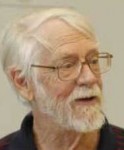 We mourn the loss of Dactyl Foundation advisory board member Angus Fletcher.
We mourn the loss of Dactyl Foundation advisory board member Angus Fletcher.
Epistemological Poetics: A Walk with Angus Fletcher by VN Alexander
In 1994, considering a course on the “Literature of Nature” at the Graduate Center of the City University New York, initially I thought it be would too pastoral for my tastes—in those days I thought I was interested in art not nature—and I almost passed it up, but the fates intervened in the form of Linda, the all-knowing and benign department secretary, who said to me, “It’s Angus Fletcher,” and, without waiting for my response, wrote my name down on the roll. In this propitious way, I was introduced to the distinguished Renaissance scholar, whose methods fitted perfectly with his subject and whose work has been, ever since, a steady spring of inspiration. In manner as well as appearance, Angus might be described, with his vibrant white hair and beard, as a classic sage. He tends to think aloud in class—about Faust’s contract or the contrapuntal voices of a fugue or Whitman—and encourages students to join in as his wanders in his mental lake country. Joan Richardson has called Angus Fletcher “a magically gifted teacher in whose presence we hear what thinking feels like.” Indeed the synesthetic experience of his poetic logic was always instructive, leading inevitably to the unforeseen vista. Memories of 1994 recall that at some auspicious point in each ninety-minute session, he would suddenly deliver an inspired oration that would leave us all physically moved. To come upon such depth and breath of erudition is to feel precisely what García López de Cárdenas must have felt when he unexpectedly came upon the Grand Canyon. Continue reading “Angus John Stewart Fletcher 1930-2016”
Marcella Faria Joins Dactyl Foundation as Researcher in Art & Science Interactions
Marcella Faria earned her MSc in Biochemistry at the University of São Paulo and her dissertation subject was the controls in mammalian cell cycle. She earned a Ph.D. in Biophysics at the Museum of Natural History in Paris, studying the artificial modulation of gene transcription. She has been a Post Doctoral fellow at The Federal University of São Paulo (Unifesp) and at the Collège de France in Paris always interested in the molecular controls of cell fate transitions. She has held a young talent grant leading her own research group at the University of São Paulo, and has been an associated researcher at the Butantan Institute in São Paulo. She contributed more than forty scientific articles in indexed journals and book chapters, edited two books, supervised students, and is on the editorial boards of Central Nervous System Agent in Medicinal Chemistry, Biosemiotics, and Cadernos de História da ciência do Instituto Butantan. In 2017 she will be joining Dactyl Foundation as a invited researcher to work on multidisciplinary projects, with special emphasis on word games in cell biology, and the various concepts of “fate” adopted during the 20th century in literary fiction and in cell biology.
Latest from Dactyl Review

The Things We Lose, The Things We Leave Behind by Billy O’Callaghan
Posted on October 10, 2016 by Dactyl Review
What to say about Things we Lose (New Island Press, 228 pages) a book that stunned me, time and again. I might call Billy O’Callaghan a “writer’s writer,” if that term did not immediately consign a writer to obscurity. (In the USA, Richard Yates is often referred to as a “writer’s writer,” and until the movie Revolutionary Road, few people, apart from those who taught in MFA programs, knew his name.)
I would like to invent a new way to describe what I think Billy O’Callaghan will leave as his literary legacy. I would call him a “human’s human” (with a pen) or an “explorer’s explorer” of our dreams. I would call him a poet of the spirit. Or, maybe, to use a more prosaic analogy, he is a housekeeper who assiduously dusts the cluttered rooms we keep closed, even from our conscious minds. Continue reading →
Continue reading “Latest from Dactyl Review”
Latest from Dactyl Review
 Going Dark: Selected Stories by Dennis Must
Going Dark: Selected Stories by Dennis Must
As I read Going Dark, Selected Stories by Dennis Must, (Coffeetown Press, 170 pages) I saw a realistic foundation in each story. Here is a recognizable world with real people suffering real-life anguish. What interested me, however, was the way the author then handled time, space, and imagination. To come to grips with it, I had to invent a literary term—lyrical surrealism—to distinguish Must’s work from fantasy which, to my mind, means dragons and dragonspeak, time warps, elves and men with long beards carrying oaken staves and speaking some dialect of incomprehensible origin.
Continue reading “Latest from Dactyl Review”
Ancient Wars/Modern Vets
One of the many great events scheduled for the Millbrook Literary Festival.
In this ninety-minute illustrated presentation, Peter Meineck offers short readings from contemporary translations of ancient texts to elucidate the connections between the experience of the American veteran community and the ancient Greeks and Romans. Participants will be asked to relate their own stories to the ancient material and together will explore themes such as coming home, democracy and war, women at war, the ethics of war and the relationships between veterans and civilians.
Millbrook Literary Festival starts fundrasing drive
 The 8th annual Millbrook Literary Festival will be held on May 21, 2016, from 10AM to 5PM, carrying on the vision of Festival founder Scott Meyer, who sought to engage the local community, share his love of books, and encourage writers.
The 8th annual Millbrook Literary Festival will be held on May 21, 2016, from 10AM to 5PM, carrying on the vision of Festival founder Scott Meyer, who sought to engage the local community, share his love of books, and encourage writers.
The 2016 Festival will feature nationally recognized authors, including Lauren Belfer, K. L. Going, and Valerie Martin, and introduce up-and-coming authors such as Owen King, the graphic novelist son of Stephen King. The Festival will support our talented local and regional writers with a workshop meet-up, a publishing panel, book-to-screenplay writing panel, and a new writing award in honor of Scott Meyer. With funding from the New York Council for the Humanities, we will present Peter Meineck, offering a program specially designed for veterans and their families. Our many community development programs include a panel with Fountains residents sharing their experiences with young readers and, as always, our Young Writers’ Showcase, as well as a number of fun children’s panels. Many more authors and illustrators will be participating throughout the day at the Millbrook Library on Franklin Avenue. See our website for updates on participating authors.

